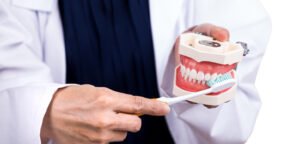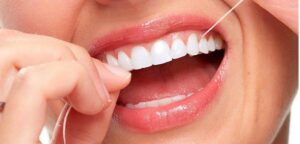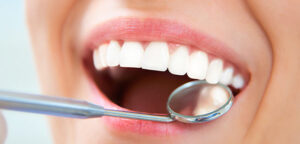Common mistakes in dental care: how to avoid them and keep your mouth healthy
Dental care plays a crucial role in maintaining the health of your mouth and the beauty of your smile. However, there are common mistakes that you may make in the process of caring for your teeth, which may affect your oral health negatively. By avoiding these mistakes and adopting the right habits, you can maintain your dental health and prevent potential problems. In this article, we will review some common dental care mistakes, and how to avoid them and maintain a healthy and beautiful mouth.
What are the most common mistakes in dental care?
There are several common dental care mistakes that can negatively affect your oral health. Here are some of them:
- Brushing your teeth quickly: Not spending enough time brushing your teeth may cause the accumulation of plaque and tartar, so you should brush your teeth for at least two minutes.
- Not using the correct brush: Using a toothbrush with hard bristles may lead to gum erosion and damage to the es es enamel on the teeth. Use a soft-bristled brush suitable for the mouth.
- Ignoring interdental cleaning: not using dental floss or a brush to clean difficult places allows plaque to accumulate between the teeth and near the gums, which increases the chances of gingivitis and tooth decay.
- Go beyond cleaning the tongue: The tongue retains a lot of bacteria and unpleasant odors, so cleaning It gently contributes to maintaining fresh breath.
- Rinse excessively: Rinse too much can cause a loss of good bacteria in your mouth. Consult your doctor before using a rinse aid on a regular basis.
- Ignoring a visit to the dentist: Some people usually ignore a visit to the dentist unless there Is pain. It is Important to visit your dentist regularly to check and clean your teeth and to detect any problems early.
- Excessive sugar intake: Excessive sugar intake Increases the risk of cavities. Try to reduce your sugar consumption and eat it at the right times.
- Not replacing the brush regularly: It is preferable to change the toothbrush every 3-4 months or when the bristles become frayed.
In short, good dental care includes thorough and regular brushing, avoiding unhealthy habits, and making regular visits to the dentist.

How to avoid toothbrush mistakes to avoid common mistakes in dental care
To avoid common mistakes in using a toothbrush and ensure proper care of your teeth, you can follow these steps:
- Choosing the right brush: Choose a toothbrush with soft and flexible bristles. Hard bristled brushes may erode enamel and irritate gums.
- Correct brushing technique: Use correct brushing technique by positioning the brush at a 45-degree angle towards the gum line and teeth. Make small, circular motions to brush the outer and inner surface of the teeth.
- Tongue cleaning: Don’t forget to gently clean the tongue using a brush or tongue nurse.
- Using dental floss or dental floss: Use dental floss or dental floss to reach difficult spaces between the teeth. Move It gently and avoid causing the gums to bleed.
- Use the appropriate toothpaste: Choose a toothpaste that contains fluoride to protect against cavities. Avoid overly whitening toothpastes.
- Change your brush regularly: Replace your toothbrush every 3-4 months or when the bristles become frayed.
- Brush gently: Do not use excessive force while brushing. Brush gently to avoid damaging the gums or enamel.
- Use additional oral cleaning techniques: You can use antibacterial mouth rinses and alcohol-free oral water as part of your oral care routine.
- Care of the tool: After brushing, rinse it well and leave It in a place to allow It to dry well.
- Visiting the dentist: Remember that a regular visit to the dentist for periodic examination and cleaning is necessary to maintain dental health.
It Is important to be careful and careful during dental care and to follow the directions recommended by your dentist.

Flossing Mistakes: Why Should Flossing Be Part of Your Oral Health Routine?
Neglecting dental floss can lead to oral health problems, which is why dental floss should be an essential part of your oral care routine. Here are some of the reasons why dental floss Is necessary:
- Reaching difficult areas: the brush cannot reach all the spaces between the teeth. Dental floss helps you get into those narrow, difficult areas that could be sticking to plaque and food waste.
- Prevention of cavities: When plaque builds up between the teeth, it can turn into cavities. Using dental floss regularly helps remove this buildup and prevent tooth decay.
- Prevention of gingivitis: the accumulation of plaque between the teeth can lead to inflammation and bleeding gums. Dental floss helps remove plaque and germs that may cause gingivitis.
- Maintaining a fresh breath: Plaque and food residues accumulated between the teeth can cause bad breath. Using dental floss reduces this problem and contributes to maintaining fresh breath.
- Maintaining healthy gums: Healthy gums are Important to support the teeth and keep them stable. Using dental floss on a regular basis contributes to maintaining gum health.
- To ensure complete care of your oral health, your daily care routine should include brushing, flossing and mouth rinses. Be sure to consult your dentist for exact directions on how to properly use dental floss.
- Eating fast food a lot: Fast food is often rich In sugar and starches and lacks nutritional value. Try to reduce junk food and choose healthy foods such as vegetables and healthy proteins.
- Exceed eating bread and starches: Eating a lot of bread, pastries and starches can cause aggregation of germs and plaque and an increase In tooth decay.
- Not eating foods rich in calcium: Calcium is essential for healthy teeth and bones. Avoid calcium deficiency in your diet by eating dairy and calcium-rich foods.
- Not eating enough fruits and vegetables: Fruits and vegetables contain vitamins and minerals necessary for healthy gums and teeth. Make sure to include a variety of them in your daily meals.
- Eat sugary gum: Sugary gum can cause tooth decay if It is bitten on frequently. Choose sugar-free gum if you like to chew gum.
By reducing these mistakes in the diet and adopting healthy eating habits, you can keep your teeth and gums healthy. Don’t forget to visit your dentist regularly for regular check-ups and cleanings.

Mistakes in the use of oral bleaches: How to get white teeth safely and without damage?
Using oral whiteners to get whiter teeth can be beneficial, but they must be used with caution to avoid any potential damage. Here are some tips for getting white teeth safely:
- Consult your dentist: Before using any oral whiteners, It is best to consult your dentist. There may be things you need to consider before using teeth whiteners.
- Choose a safe product: Choose oral whiteners that are recognized and recommended by medical associations and health care organizations. Avoid using unapproved or unsupervised products.
- Follow instructions carefully: Before using bleach, read and follow the instructions for use carefully. Failure to follow instructions can lead to unsafe use and unwanted results.
- Regular and moderate use: Use the bleach according to the recommended doses and intervals. Avoid excessive or frequent use, as this can damage the enamel and Increase sensitivity.
- Avoid Sensitivity: If you suffer from sensitive teeth, oral bleaching agents may not be suitable for you. Talk to your dentist about other teeth whitening options.
- Watch for side effects: Keep track of any side effects that occur while using bleach, such as irritation or allergic reactions. If any problems occur, consult your doctor.
- Avoid Continuous Use: Once you get the desired results, stop using the oral whiteners and continue your normal daily dental care.
- Good daily care: Keeping your teeth healthy requires regular brushing, flossing and regular visits to the dentist. This contributes to maintaining the color and health of the teeth in general.
Note that teeth whitening can be an individual experience, and results may vary from person to person. Consult your dentist for advice tailored to your personal situation and needs.

Mistakes for ignoring regular dental visits: Why should regular visits be part of your dental care routine?
Regular visits to the dentist are an essential part of your dental and gum care routine. Here are some important reasons why regular visits should be an essential part of your dental routine:
- Early detection of oral problems: During regular visits, the dentist can detect oral health problems early before they worsen. This includes tooth decay, gingivitis, and any other problem that may be hidden.
- Better cleaning and descaling: Although daily dental care is important, plaque and tartar can build up over time. During visits, the doctor can perform a better cleaning and remove these deposits more effectively.
- Professional supervision: Your dentist can evaluate your dental care and give you guidance on how to improve your daily oral care habits. This can help you maintain better oral health.
- Prevention of future problems: Regular visits help prevent future dental problems. By detecting problems early and taking preventative measures, you can prevent problems from developing into more serious stages.
- Avoid the cost of expensive treatments: When a problem Is detected early, the costs of more complex treatments and later costs can be avoided.
- Maintain a thorough inspection: Regular visits allow the dentist to perform a thorough inspection of the mouth, gums and teeth and then provide direct guidance on care.

When should I see a doctor?
It is recommended to visit the dentist regularly to maintain the health of your teeth and gums. The schedule for visits may vary slightly based on your personal needs and health status, but In general, here are the general guidelines:
- Visit every 6 months: Visit every 6 months Is the standard schedule. This helps in early detection of dental and gum problems and prevention of future problems.
- Dentist’s directions: Your dentist may suggest a different schedule based on your condition and needs. You may need more frequent visits If you have certain health problems.
- Previous treatment history: If you have had previous treatment or special procedures, multiple visits may be required to check on treatment progress and be reassured of results.
- Certain symptoms: If you suffer from pain, swelling or any unusual problem in the mouth or teeth, it is recommended to visit the dentist without waiting for the next periodic visit.
- According to the age group: Children and the elderly may need a different schedule, as children need special care for the development of their teeth, and the elderly may need periodic follow-up to ensure that there are no health problems.
- Dental or dental Implants, there will be a special schedule that determines your visits.
In general, if you are following daily guidelines for dental and gum care and feel comfortable with your oral health, a visit to the dentist every 6 months can be sufficient. But always remember that consulting your dentist about your visit schedule can be the best step In determining whether a specific schedule will suit your Individual needs.
This content has been approved by Zein Clinic doctors
To contact the doctor and provide a free consultation, click here:
Did you like our theme? You can share it with your friends now!
Read more:
The most frequently asked questions about dental Implants
The benefits of gum transplantation and when the patient needs to perform it
The reasons for the failure of dental implants and how to avoid them
The most important tips before and after a Hollywood smile
The success of dental Implants for diabetics
Sources: Clevelandclinic


 واتساب
واتساب